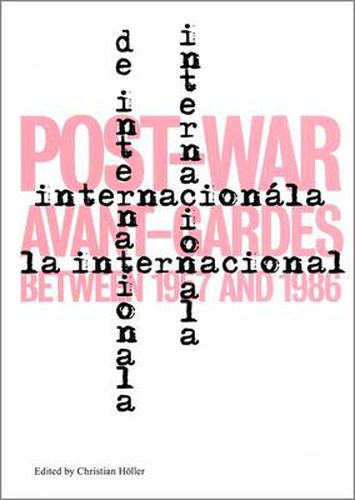Readings Newsletter
Become a Readings Member to make your shopping experience even easier.
Sign in or sign up for free!
You’re not far away from qualifying for FREE standard shipping within Australia
You’ve qualified for FREE standard shipping within Australia
The cart is loading…






L'Internationale is a trans-institutional network of five major European museums and artists’ archives: Moderna Galerija Ljublana, Julius Koller Society Bratislava/Vienna, MACBA Barcelona, Van Abbemusuem Eindhoven and MHKA Antwerp. With these five museums and their respective collections as a starting point, L'Internationale: Post-War Avant-Gardes Between 1957 and 1986 presents a range of case studies and historiographical and theoretical essays that reconsider a period in art history that was dominated by the art of Western Europe and North America. The publication instead portrays a more dispersed, multi-polar and interconnected neo-avant-garde, one that existed long before it became common to think in terms of globalization or trans-nationalism. In the process, this book questions how local narratives can be brought together in a new rhizomatic way, one that works to reshape our ideas of translocalism and internationalism.
$9.00 standard shipping within Australia
FREE standard shipping within Australia for orders over $100.00
Express & International shipping calculated at checkout
L'Internationale is a trans-institutional network of five major European museums and artists’ archives: Moderna Galerija Ljublana, Julius Koller Society Bratislava/Vienna, MACBA Barcelona, Van Abbemusuem Eindhoven and MHKA Antwerp. With these five museums and their respective collections as a starting point, L'Internationale: Post-War Avant-Gardes Between 1957 and 1986 presents a range of case studies and historiographical and theoretical essays that reconsider a period in art history that was dominated by the art of Western Europe and North America. The publication instead portrays a more dispersed, multi-polar and interconnected neo-avant-garde, one that existed long before it became common to think in terms of globalization or trans-nationalism. In the process, this book questions how local narratives can be brought together in a new rhizomatic way, one that works to reshape our ideas of translocalism and internationalism.